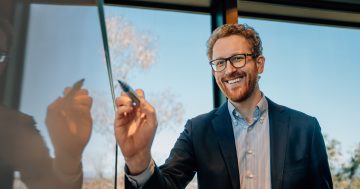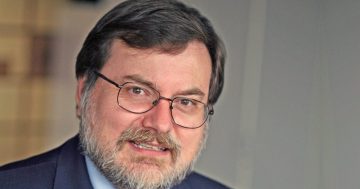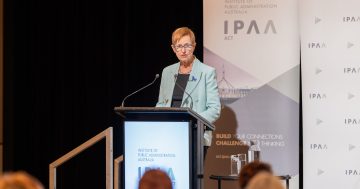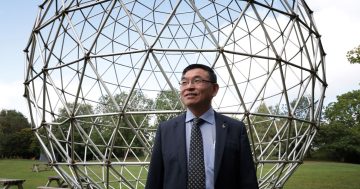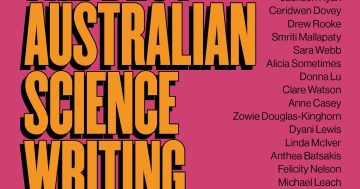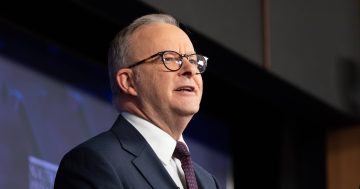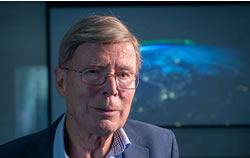 The Prime Minister has presented his 2018 prizes for science, recognising the work of 10 scientists and science educators in seven categories.
The Prime Minister has presented his 2018 prizes for science, recognising the work of 10 scientists and science educators in seven categories.
Kurt Lambeck (pictured), who revealed how our planet changes shape from second to second, day to day, took out one of the two major awards.
Prime Minister Scott Morrison said the practical applications for Professor Lambeck’s research at the Australian National University were extensive.
“His work forms the basis for GPS-based systems used in agriculture, mineral exploration and smartphone navigation,” Mr Morrison said.
Professor Lambeck received the Prime Minister’s major Prize for Science.
The other major award, the Prime Minister’s Prize for Innovation, was presented to the Finisar team for creating technologies that made the internet faster and more efficient. Team members were Simon Poole, Andrew Bartos, Glenn Baxter and Steven Frisken.
Other awards presented by Mr Morrison included the Prime Minister’s Prize for Excellence in Science Teaching in Secondary Schools which went to Scott Sleap who created the Cessnock Academy of STEM Excellence in regional NSW, opening young eyes to careers in science, technology, engineering and mathematics.
The Prime Minister’s Prize for Excellence in Science Teaching in Primary Schools went to the lead science teacher at Warrigal Road State School in Brisbane, Brett Crawford, for creating an environment in which every teacher is engaged in science.
Minister for Industry, Science and Technology, Karen Andrews presented the Frank Fenner Prize for Life Scientist of the Year to Lee Berger from James Cook University and the University of Melbourne for saving frogs and revealing new extinction threats.
Adjunct Professor Berger discovered that a fungus had caused frog extinctions.
Mrs Andrews also presented the Malcolm McIntosh Prize for Physical Scientist of the Year to Jack Clegg from the University of Queensland for creating flexible crystals. His crystals could make smartphones and other electronics more robust.
Mrs Andrews presented the prize for New Innovators to Geoff Rogers for creating a steerable guidewire that could transform cardiac and other non-invasive cardiac surgery.


